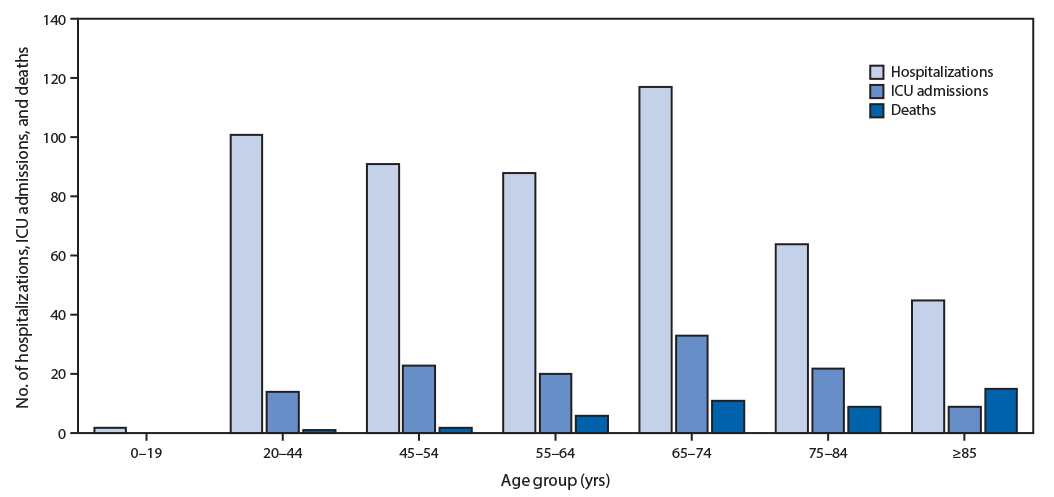Think you’re too young to be hospitalized by coronavirus? This chart shows why you’re wrong

The World Health Organization has warned that young people shouldn't be complacent toward the virus. Image: REUTERS/Ronen Zvulun
- COVID-19 findings from the US show younger adults are being hospitalized.
- Fatalities were highest in people over 85 years old, but the World Health Organization warns younger people against complacency.
- Infected young adults are sharing experiences on social media.
Getting infected by COVID-19 isn’t just a worry for the elderly.
That’s one of the first findings about the virus in the US, according to a new report from the Centers for Disease Control and Prevention (CDC).
What is the World Economic Forum doing about the coronavirus outbreak?
While fatalities were highest in people over 85 years old, catching COVID-19 can result in hospitalization and admission to an intensive care unit for a range of ages, it said. Of the more than 500 people known to be hospitalized, 18% were 45-54 years and 20% were aged 20-44 years.
Of those admitted to intensive care, 36% were aged 45-64 years and 12% were aged 20-44 years. No ICU admissions were reported among people 19 years or younger.

“Clinicians who care for adults should be aware that COVID-19 can result in severe disease among persons of all ages,” says the report, titled Severe Outcomes Among Patients with Coronavirus Disease 2019 (COVID-19). “Social distancing is recommended for all ages to slow the spread of the virus.”
Young people are not invincible
The findings come as the World Health Organization (WHO) warned against complacency, after media reports showed young people in many countries ignoring the advice to practise social distancing.
“Although older people are hardest hit, younger people are not spared,” WHO Director-General Tedros Adhanom Ghebreyesus told a news conference. “I have a message for young people: you are not invincible, this virus could put you in hospital for weeks or even kill you.”

Some of the complacency may stem from the fact that reports from China, which felt the initial impact of the pandemic, showed older people were most affected. The US CDC’s findings underlined this: 31% of all cases studied, 45% of hospitalizations, 53% of ICU admissions, and 80% of deaths associated with COVID-19 were among adults aged 65 years or more, with the highest percentage of severe outcomes among persons aged 85 years or more.

Warnings from social media
Even so, low risk doesn’t mean no risk, and young people around the world have been sharing their experiences of grappling with the virus online, as a warning to others. These include Tarek Soliman, a costume designer, who posted on Instagram from New York’s Mount Sinai West hospital.
“Here’s my story with coronavirus, especially for young people who think this virus isn’t dangerous,” he wrote.
“PLEASE SHARE so more people know that this isn’t something small we are dealing with, be responsible and stay home,” Soliman wrote. “I don’t want anyone to go through what I am going through now.”
Don't miss any update on this topic
Create a free account and access your personalized content collection with our latest publications and analyses.
License and Republishing
World Economic Forum articles may be republished in accordance with the Creative Commons Attribution-NonCommercial-NoDerivatives 4.0 International Public License, and in accordance with our Terms of Use.
The views expressed in this article are those of the author alone and not the World Economic Forum.
Stay up to date:
Global Health
Forum Stories newsletter
Bringing you weekly curated insights and analysis on the global issues that matter.
More on Health and Healthcare SystemsSee all
Mansoor Al Mansoori and Noura Al Ghaithi
November 14, 2025







